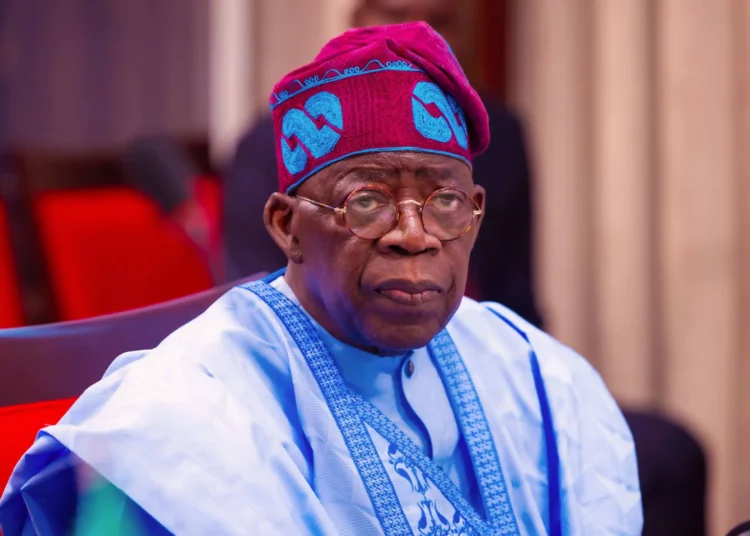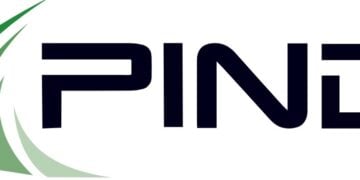As the current government under the leadership of President Bola Ahmed Tinubu clocked one year on May 29, 2024, the pledge of N200 billion Intervention Fund for Small and Medium Enterprises (SMEs) made at the inauguration of this government is yet to materialise as most Micro, Small and Medium Enterprises (MSMEs) in the country claimed they are yet to benefit from the scheme, LEADERSHIP learnt.
The intervention fund, as announced by the President in his inaugural speech, was to energise the Micro, Small and Medium Enterprises (MSMEs), Nano businesses and manufacturing sector in the country.
Meanwhile, in April 2024, the federal government announced the launch of a N200 billion Presidential Intervention Fund for Micro, Small and Medium Scale Enterprises (MSMEs) and manufacturers in the country.
The minister of Industry, Trade and Investment, Doris Uzoka-Anite, who made the announcement in a post on her X, formerly Twitter, page, said the gesture was targeted at supporting one million nano businesses across the country, the government has decided to include both MSMEs and manufacturers in the initiative.
The trade minister said the new grant will be recovered in monthly equal instalments with no moratorium, spanning a three-year term.
Under the scheme of arrangement, N75 billion was expected to be distributed to MSMEs while another N75 billion will be distributed to players in the manufacturing industry under the Presidential Intervention Fund.
Despite the N200 billion intervention funds rolled out to energise the manufacturing sector to improve local content drive and strengthen local economy for manufacturers in the country, the Micro, small and medium enterprise claimed they are yet to access any of the intervention funds to revolutionise the sector.
This is even as most SMEs are groaning under an excruciating and tough business operating environment that has led to collapse of some, while the remaining existing ones have downsized to cope with the current economic realities.
Aside from the fact that this development has further bloated the already saturated labour market, it has equally taken a toll on the balance sheets of the affected businesses.
Other challenges businesses are grappling with, include; fuel subsidy removal, forex market volatility, multiple taxation, electricity tariff, among others.
Reacting on the N200 billion intervention funds by MSMEs, experts and SMEs stakeholders claimed they are yet to see any evidence of the intervention funds allotted to the sector, adding that the disbursement focused more on the manufacturing sector than MSMEs in the country.
Checks by LEADERSHIP revealed that MSMEs ranks third in terms of the least allocation within the intervention programmes, trails behind the export sector with a meagre two per cent allocation and the health sector, which barely constitutes per cent of the total intervention programmes.
Hence, SMEs stakeholders raised alarm, stressing that, frequent policy flip-flops, high interest rate on loans, hyper-inflation, astronomical energy cost, multiple charges and a generally toxic operating space among other constraints, have made them endangered species such that only pragmatic solutions, not just rhetorics can save them from the final gasp of ruins.
Speaking in a telephone conversation with LEADERSHIP, President, Association of Small Business Owners of Nigeria (ASBON), Dr. Femi Egbesola, noted that the subsidy removal and consequent hike in the pump price of fuel eroded the capital base of small businesses hence, leading to sharp drop in sales and decrease in liquidity for small businesses.
He recalled that president Bola Tinubu, in his inaugural address on May 29, 2023, announced the removal of fuel subsidy and plans to unify the foreign exchange (forex) market, based on which the Central Bank of Nigeria (CBN) subsequently liberalised the forex market.
Commenting on the impact of these policy measures so far on the MSMEs, Egbesola stated that: “Small businesses have suffered additional shocks and multiple headwinds with great significant losses and setbacks due to the fuel price increase as a result of subsidy removal. Many small businesses are no longer running at profit levels. Sales have dropped sharply and turnover is low with supply side inflation.
‘‘This has inadvertently resulted in a drop in production/sales below capacity, job losses, decrease in cash availability and ultimately a handful of businesses had gone moribund or experienced total closure. It is indeed a sorry case.”
He noted that the resultant effect of the action is already manifesting in increasing the prices of goods and commodities. “This is already evident as prices of goods and commodities have risen and it will remain on the upward trend. The reality has downed us as many of our MSME (Micro, small and medium enterprises) members complained bitterly of low sales or no sales.
“It is unfortunate that there aren’t palliatives put in place to cushion the negative effects of subsidy removal, particularly on poor households and small businesses before its eventual implementation. This has added to the myriads of challenges beseeching MSMEs at this time,” he pointed out.
To him, “We have not seen any policy in sight directed to the SMEs, we have not seen any Interventions for SMEs and large corporations, we have not seen any formidable plan in black and white. We have not had any actionable policy that has been implemented to drive the micro economy. The only thing on ground are paperwork and mere speeches. We are yet to see any roll out of intervention funding programmes for SMEs and the informal sector. What we see are mere speeches, promises without economic blueprints to energise the sector.”
Egbesola further suggested that, small businesses can mitigate the impact of the policies by, ‘relearning new ways of managing funds, avoiding bank loan for reason of it’s high interest rate.’
On his part, the chairman, SMEs Group of the Lagos Chamber of Commerce and Industry, (LCCI), Daniel Dickson Okezie said, after the removal of fuel subsidy, about 10 per cent of SMEs closed down from reports and obviously since then till now about 10 to 15 per cent of SMEs have closed shop.
“Eventually, this will affect the government’s revenue in terms of taxes as well as other multiplied problems. And other companies that depend on multinationals and local companies will have to go out of business which will increase the problems of the economy,” he said.
On his part, executive director of CISLAC, Auwal Ibrahim Musa (Rafsajani) stressed that, despite various establishment and agencies created to support the SMEs in the country, access to finance continues to be the most pressing problem as only about five per cent of SMEs have been able to access adequate finance for working capital and for funding business growth.
He highlighted varieties of government backed organisation, notably the Small and Medium Enterprises Development Agency of Nigeria, (SMEDAN), Bank of Industry, (BOI), Nigeria Export-Import Bank, (NEXIM), Central Bank of Nigeria and Nigeria-Incentive Based Risk Sharing system for Agriculture Based Lending, (NIRSAL) while positing that, despite the creation of these establishment to assist the MSMEs, by setting up SME development agency across 26 states in Nigeria, the MSMEs have been impacted by weak funding policy and in most cases, lack of access to finance.
He said, government should improve access to finance for SMEs, strengthen statutory allocation for both legal, and financing institutions to strengthen platforms for SMEs while calling on the government to interface for fiscal support and mutual growth expansion for SMEs.
On the other hand, the chairman of the National Association of Small and Medium Enterprises (NASME), Oyo State, John Karunwi, believes that, the last one year of the administration was plagued by inflation, forex challenges, floating of currency, multiple exchange rate and devaluation of Naira which eroded investors’ confidence in the country.
NASME called for price stability, inflation control, and reliable power supply, saying the aforementioned were crucial to the survival and growth of MSMEs in Nigeria.





